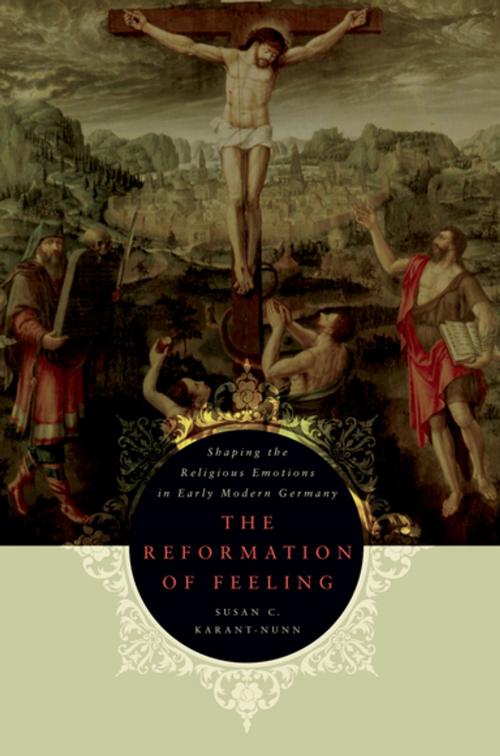The Reformation of Feeling
Shaping the Religious Emotions in Early Modern Germany
Nonfiction, Religion & Spirituality, Reference, History, Christianity, Church, Church History| Author: | Susan C. Karant-Nunn | ISBN: | 9780199889723 |
| Publisher: | Oxford University Press | Publication: | April 29, 2010 |
| Imprint: | Oxford University Press | Language: | English |
| Author: | Susan C. Karant-Nunn |
| ISBN: | 9780199889723 |
| Publisher: | Oxford University Press |
| Publication: | April 29, 2010 |
| Imprint: | Oxford University Press |
| Language: | English |
In The Reformation of Feeling, Susan Karant-Nunn looks beyond and beneath the formal doctrinal and moral demands of the Reformation in Germany to examine the emotional tenor of the programs that the emerging creeds--revised Catholicism, Lutheranism, and Calvinism/Reformed theology--developed for their members. As revealed by the surviving sermons from this period, preaching clergy of each faith both explicitly and implicitly provided their listeners with distinct models of a mood to be cultivated. To encourage their parishioners to make an emotional investment in their faith, all three groups drew upon rhetorical elements that were already present in late medieval Catholicism and elevated them into confessional touchstones. This book is exceptional in its presentation of a cultural rather than theological or behavioral study of the broader movement to remake Christianity. As Karant-Nunn conclusively demonstrates, in the eyes of the Reformation's formative personalities strict adherence to doctrine and upright demeanor did not constitute an adequate piety. The truly devout had to engage their hearts in their faith.
In The Reformation of Feeling, Susan Karant-Nunn looks beyond and beneath the formal doctrinal and moral demands of the Reformation in Germany to examine the emotional tenor of the programs that the emerging creeds--revised Catholicism, Lutheranism, and Calvinism/Reformed theology--developed for their members. As revealed by the surviving sermons from this period, preaching clergy of each faith both explicitly and implicitly provided their listeners with distinct models of a mood to be cultivated. To encourage their parishioners to make an emotional investment in their faith, all three groups drew upon rhetorical elements that were already present in late medieval Catholicism and elevated them into confessional touchstones. This book is exceptional in its presentation of a cultural rather than theological or behavioral study of the broader movement to remake Christianity. As Karant-Nunn conclusively demonstrates, in the eyes of the Reformation's formative personalities strict adherence to doctrine and upright demeanor did not constitute an adequate piety. The truly devout had to engage their hearts in their faith.















